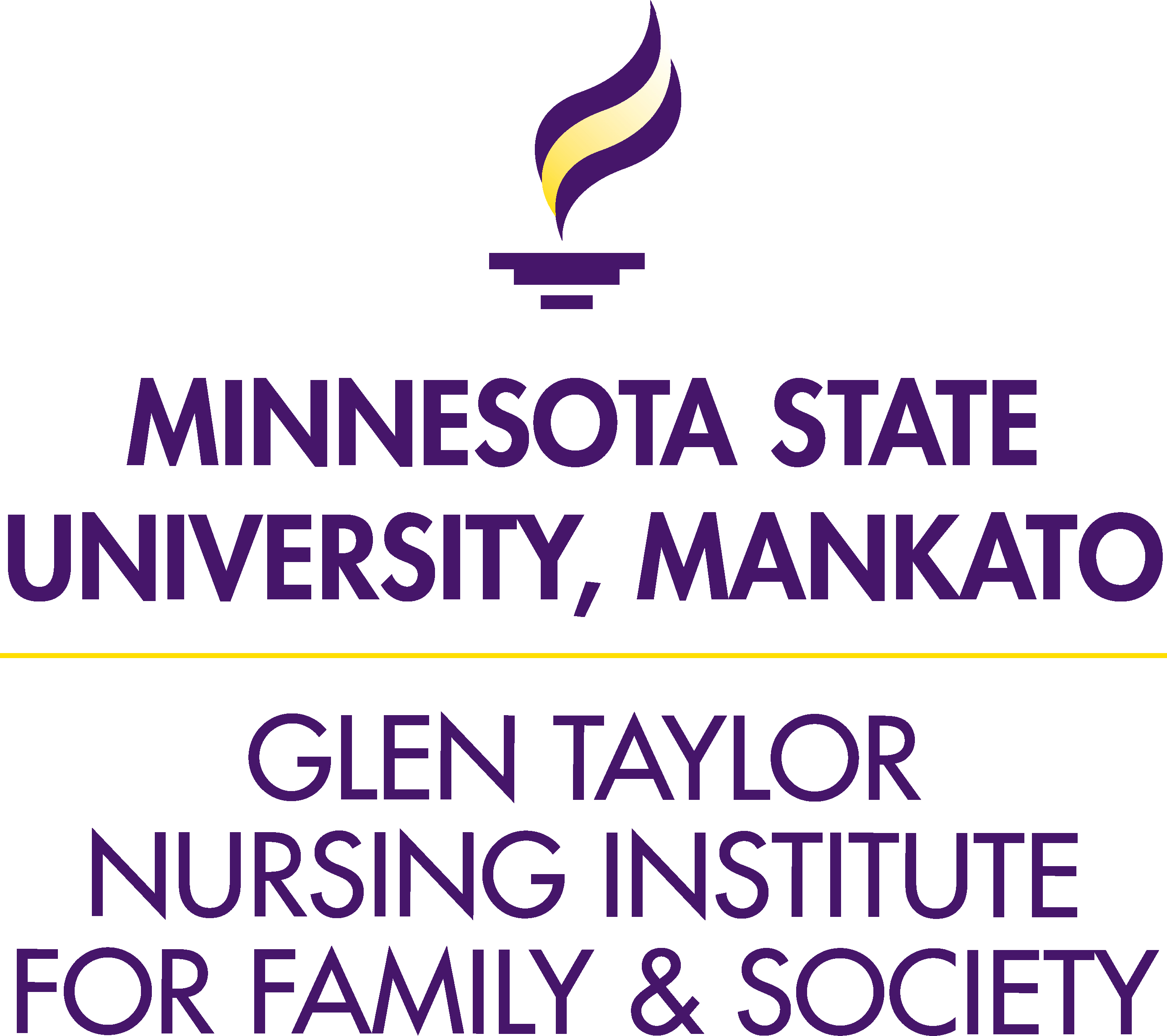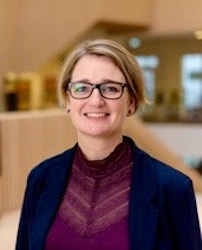 Laila Mohrsen Busted, MSc, RN, is a senior lecturer, Department of Nursing Education, University College Lillebaelt located in Vejle, Denmark where she teaches family nursing science to undergraduate and postgraduate students. She is currently a doctoral student at the University of Southern Denmark and her research is exploring family interventions in family focused dementia care using the practice model of Family Health Conversations (FamHC). Her qualitative research examines whether FamHC, as an early intervention for persons with dementia and their family members, reduces the burden that families experience. Follow-up family interviews will also be conducted one year after the intervention is offered. For more information contact IFNA member, Laila Mohrsen Busted.
Laila Mohrsen Busted, MSc, RN, is a senior lecturer, Department of Nursing Education, University College Lillebaelt located in Vejle, Denmark where she teaches family nursing science to undergraduate and postgraduate students. She is currently a doctoral student at the University of Southern Denmark and her research is exploring family interventions in family focused dementia care using the practice model of Family Health Conversations (FamHC). Her qualitative research examines whether FamHC, as an early intervention for persons with dementia and their family members, reduces the burden that families experience. Follow-up family interviews will also be conducted one year after the intervention is offered. For more information contact IFNA member, Laila Mohrsen Busted.
Dr. Eydis Sveinbjarnardottir Leads Family Nursing Research in Northern Iceland
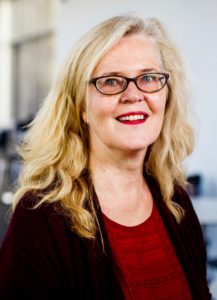 Eydis Kristin Sveinbjarnardottir, RN, MSN, PhD, is currently Dean of the School of Health Sciences and an associate professor at the University of Akureyri (Unak) in Iceland.
Eydis Kristin Sveinbjarnardottir, RN, MSN, PhD, is currently Dean of the School of Health Sciences and an associate professor at the University of Akureyri (Unak) in Iceland.
In the autumn of 2016, a decision was made by the administration of Akureyri’s Hospital (SAk) to implement family nursing in the entire hospital (similar to the Landspitali Family Nursing Implementation Project (2007-2011). Members of the Center of Family Nursing Research and Development, Landspitali National University Hospital in Reykjavik travelled to Akureyri and offered two days of education for nurse leaders at SAk to begin the implementation process. Unak and SAk have a formal research collaboration agreement which provides Dr. Sveinbjarnardottir an opportunity to supervise and collaborate with masters and doctoral students at Unak as they conduct research on this hospital-wide implementation of family nursing.
For a brief update about the new Akureyri Family Nursing Implementation Project that is in progress, please see the following links:
Dr. Sveinbjarnardottir and Dr. Erla Kolbrun Svavarsdottir, Professor, University of Iceland are continuing to collaborate in the development and language translations of their co-developed Iceland-Family Perceived Support Questionnaire (ICE-FPSQ). The ICE-FPSQ has been translated and psychometrically tested into Swedish. A doctoral student at the University of Lisbon, co-supervised by Dr. Sveinbjarnardottir, has translated and psychometrically tested the ICE-FPSQ in Portuguese.
For more information contact IFNA member, Eydis Sveinbjarnardottir.
Family Nursing in Australia
 Australian nursing, influenced by Western tradition, has a focus of engaging with families as context in person/child centred healthcare. Unlike the Anglo-Celtic concepts of health, family, and nursing, Australian Aboriginal & Torres Strait Islander health is founded on wide family and kinship lines; access and connection to land and the environment; collective relationships within community; and spirituality and ancestry.
Australian nursing, influenced by Western tradition, has a focus of engaging with families as context in person/child centred healthcare. Unlike the Anglo-Celtic concepts of health, family, and nursing, Australian Aboriginal & Torres Strait Islander health is founded on wide family and kinship lines; access and connection to land and the environment; collective relationships within community; and spirituality and ancestry.
Today, nurses in Australia are competent in family as context for patient care as part of the national nursing registration standards. There is now a trend toward nursing practice that recognizes the family as focus of care using a strengths based perspective. Movement towards a broader understanding of family nursing in Australia can be seen through diverse community and child health nursing areas and acute care nursing. Family nurses are partnering with families and increasingly recognizing families as legitimate recipients of care. For example, in Intensive Care Units family nursing practices have incorporated flexible visiting to enable family presence and in cancer care multidisciplinary meetings with the family are undertaken with positive outcomes. Oncology nurses are recognizing the need for caring for the family as a unit of care and often feel under-prepared for this role – a concern frequently voiced by Australian nurses.
Australian scholars are growing a strong foundation of publications to guide family nursing education, practice, and research. For more information about family nursing in Australia, contact IFNA member Lindsay Smith.
Family Nursing in the Netherlands
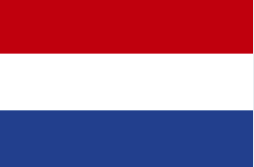 Dr. Marie Louise Luttik and her colleague, Dr. Wolter Paans, launched the first family nursing initiative in the Netherlands in 2014. The research group in Nursing Diagnostics and Family Care at Hanze University of Applied Sciences in Groningen, the Netherlands, was granted 50.000 Euros by the Centre of Expertise Healthy Ageing. With this funding, efforts to build a collaborating network of care-, research- and educational institutions began which has now been named an Innovation Lab. The objective of this Innovation Lab is to develop and promote family nursing in the Netherlands.
Dr. Marie Louise Luttik and her colleague, Dr. Wolter Paans, launched the first family nursing initiative in the Netherlands in 2014. The research group in Nursing Diagnostics and Family Care at Hanze University of Applied Sciences in Groningen, the Netherlands, was granted 50.000 Euros by the Centre of Expertise Healthy Ageing. With this funding, efforts to build a collaborating network of care-, research- and educational institutions began which has now been named an Innovation Lab. The objective of this Innovation Lab is to develop and promote family nursing in the Netherlands.
A strong team focus on family nursing education and research is being developed. The educational team offered a 6-day training in Family Health Conversations (FamHC) to 40 nurses in the participating care institutions. Three PhD students are working on three different family nursing research programs: family involvement in the hospital setting; the FamHC as an evidence-based family nursing intervention; and the role of family nursing in supporting adolescents who are living with an chronically ill family member. For more information, contact IFNA member, Marie Louise Luttik.
Dr. Marie Louise Luttik and colleagues are organizing an interdisciplinary conference in the Netherlands, Feb 8 & 9, 2018: Family Health Over Lifespan. Call for papers opens May 15, 2017.
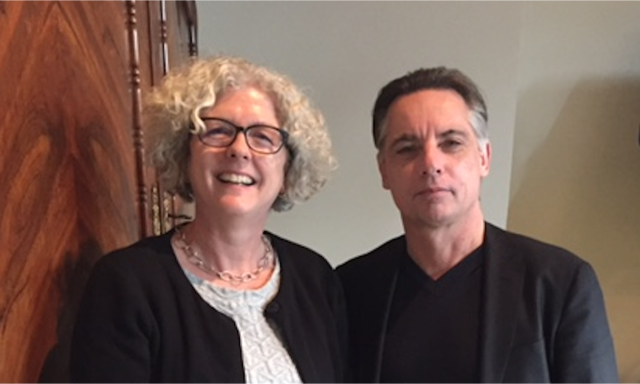
Dr. Catherine (Kit) Chesla Advances Interpretive Phenomenology Research in Family Health Care Nursing
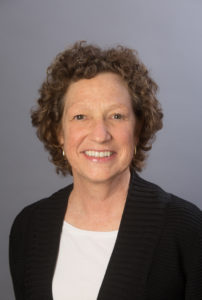 Catherine (Kit) Chesla, RN, PhD, FAAN, is a Professor and Shobe Endowed Chair for Ethics and Spirituality, Department of Family Health Care Nursing, University of California, San Francisco, USA. For over 20 years she has taught family theory, intervention, and research methods to doctoral and Family Nurse Practitioner students. She is engaged in multiple research projects that involve past, present and future work. First, she and her colleague, Dr. Kevin Chun, are working on finishing up their analysis of interpretive phenomenological data regarding couple and family processes of care, support and conflict in living with type 2 diabetes (NIH R01 NR009111). Intensive narrative study of foreign born and US born Chinese couples are being contrasted and described. They believe that culturally-specific forms of couple relations apparent in Chinese couples have the possibility to broaden our ways of thinking about and delivering care to couples living with chronic illness in the U.S.
Catherine (Kit) Chesla, RN, PhD, FAAN, is a Professor and Shobe Endowed Chair for Ethics and Spirituality, Department of Family Health Care Nursing, University of California, San Francisco, USA. For over 20 years she has taught family theory, intervention, and research methods to doctoral and Family Nurse Practitioner students. She is engaged in multiple research projects that involve past, present and future work. First, she and her colleague, Dr. Kevin Chun, are working on finishing up their analysis of interpretive phenomenological data regarding couple and family processes of care, support and conflict in living with type 2 diabetes (NIH R01 NR009111). Intensive narrative study of foreign born and US born Chinese couples are being contrasted and described. They believe that culturally-specific forms of couple relations apparent in Chinese couples have the possibility to broaden our ways of thinking about and delivering care to couples living with chronic illness in the U.S.
In a separate project, that is just beginning, Dr. Chesla is working with a nephrologist, Dr. Vanessa Grubbs, to learn about the concerns and considerations of elderly patients with end stage renal disease (ESRD) and their families, regarding treatment options (NIH R21 DK112100). They aim to articulate the particular concerns and social context variables that patients and families bring to a decision to start dialysis or conservative/ palliative care management. The aim of this interpretive project is to develop a decision tool to assist nephrologists in working with elderly patients with ESRD and their families in the future.
Finally, (and distinct from her family work) Dr. Chesla is starting pilot work on a lifestyle + sleep intervention program to prevent or delay type 2 diabetes in women with prediabetes or metabolic syndrome. She is conducting this study with funding from the National Center of Excellence in Women’s Health at UCSF, and with co-investigators Dr. Kathryn Lee and Dr. Melinda Bender.
Dr. Chesla has a long been a strong advocate and champion for family nursing. She served as member of the Coordinating Committee that helped establish IFNA in 2009 and served as the President of IFNA from 2013-2015. She is currently a member of the IFNA Board of Directors. For more information, contact IFNA member Kit Chesla.
